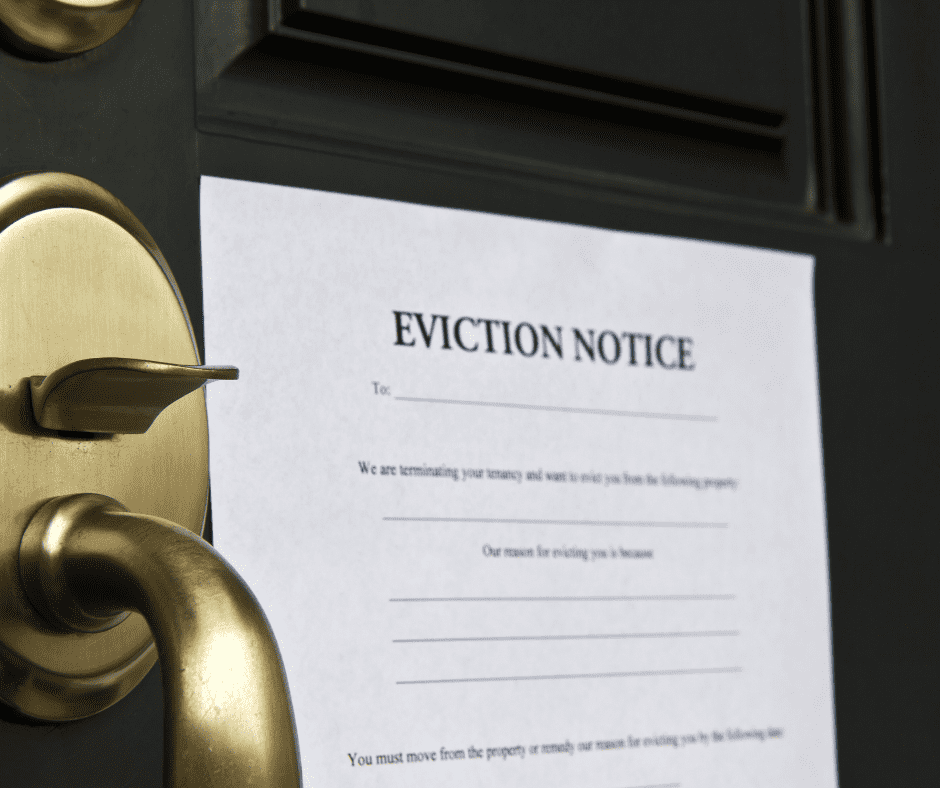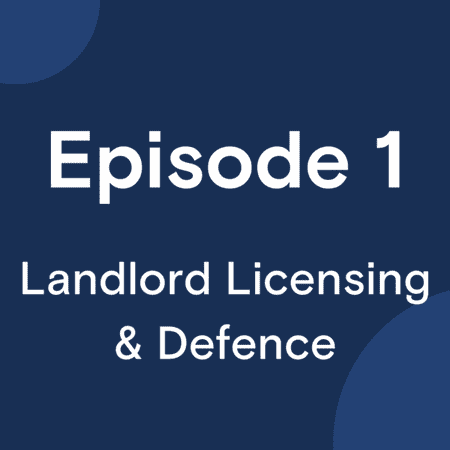The key to being a successful landlord is knowing how to craft, manage and sustain a long-term tenancy. A wealth of resources and platforms to make the best-informed decision when selecting the ideal tenant for your property are readily available. You cannot, however, fully mitigate the risks of a tenancy turning sour. As a result, you may be forced into having to seek possession of your property. To do this effectively and cost-efficiently, you will need to know the best practices on how to evict a tenant.
When it comes to property management and getting the best returns, every landlord will have their own strategy. Whether an accidental landlord or the owner of a full-fledged portfolio, regardless of how bespoke a property management strategy may be, there are two distinct types of landlords:
- The hands-on fully involved landlords who prefer to oversee every aspect of their properties and tenancies.
- The hands-off, passive income landlords who prefer the marketing, documentation and property management aspects to be overseen by a letting agent.
No matter your strategy, the income generated by your property originates from the tenants you accommodate. Keeping them happy and well looked after is the best strategy for shaping long-lasting tenancies. This in turn minimises void periods and maximises the best financial returns you and your property deserve. It should also minimise any tenant caused damages and potential stress at the end of a tenancy relating to deposits.
We won’t pretend that every tenancy is going to have a positive outcome, however. No matter how meticulous you can be in your referencing, employment and credit checks, some tenants can still be problematic. You should always have an exit strategy for everything you do in property investment and management, but that also includes being able to evict a tenant.
How can landlords evict a tenant?
The best practice for evicting a tenant depends on the type of tenancy agreement in place. From this, there are two main options for landlords on how to evict a tenant:
- Serving a Section 21 notice.
- Serving a Section 8 notice.
Some certain clauses and legalities must be met to serve each respective notice.
Serving a Section 21 notice
A Section 21 notice is a notification that you wish to regain possession of a property, usually at the end of a tenancy agreement. You can, however, still utilise this mid-tenancy, particularly if on a periodic tenancy (a tenancy with no fixed end date). It must be served no less than two months before when you wish for your tenants to vacate. There are several considerations to take when serving a Section 21 to your tenants:
- A Section 21 notice cannot be served within the first four months of a tenancy.
- A Section 21 notice is only valid for six months. On expiry, a new notice is required to be served.
- If the tenant has complaints about the condition of the property, and they escalate the issue to a local housing authority, your notice could be made invalid.
A Section 21 notice cannot be served if:
- The council have implemented an improvement notice on the property within the past six months.
- The council have served a notice to confirm they will carry out emergency works on the property within the past six months.
- The tenancy commenced after April 2007 and the deposit has not been lodged in an approved Government deposit protection scheme.
It is also important to ensure you serve the correct documentation at the start of each and every tenancy. Not serving the following documents to your tenants means you will be unable to issue a Section 21 notice:
- The energy performance certificate (EPC).
- The current gas safety certificate for the property, if gas is present.
- The ‘How To Rent‘ guide – an official document by the government.
Serving a Section 8 notice
A Section 8 notice is when there are grounds on which a tenant can be evicted. To serve a Section 8, you are required to issue a ‘notice seeking possession of a property let on an assured tenancy or an assured agricultural occupancy’. You must also state on which grounds you are evicting the tenant within the notice.
You must give your tenants a minimum of two months notice to vacate your property when serving a Section 8.
If the tenants do not leave your property by the specified date, then you can apply for a court possession order.
What are the most common reasons for evicting a tenant with a Section 8 notice?
Rent arrears or late rental payments
Communication is critical in a tenancy, as it allows you to understand a tenant’s situation. By showing empathy, you can build a great foundation for continuing to maintain communication with a tenant. This should, however, not be taken for granted. After all, you still have financial commitments that your property requires from you, such as mortgage payments.
If a tenant is frequently late with their rent payments, this can have an effect on your own financial streams. Additionally, if a tenant refuses to pay and begins to amass rent arrears, this is inevitably going to leave you out of pocket and at risk of having your property repossessed. Ensuring your tenant pays their rent and on time is key to guaranteeing your income flow, but also grounds for being able to evict your tenant if they remain unable to do so.
Anti-social behaviour
Nobody wants to live next to a neighbour who insists on playing loud music at unsociable hours, or frequently argues with a partner or housemate that reverberates into neighbouring properties. Regardless of its form, anti-social behaviour from your tenant can lead to complaints from neighbours. This in turn may forge a hostile environment that can make it increasingly difficult to re-let your property. Anti-social behaviour can also lead to the next common eviction factor.
Property damage
Ideally, you want to find tenants who treat your property with the respect and care it deserves; as if it were their own. No matter how minor any damage may be, it can all accumulate to costly repairs which you may not be able to retrieve fairly through reclaiming the deposit. Small burns or stains can render furniture or carpets irreparable, which aren’t cheap to replace. More substantial damage, such as holes in walls or damage to plumbing and pipework, can manifest into larger problems. This in turn drives up the cost of repairs, and could even mean your property has to be vacant when the works are carried out.
The manufacturing of drugs and illegal substances on the premises is also considered as grounds to evict a tenant based on the damage and anti-social behaviour caused. Illegal drug operations tend to require a serious amount of kit and bill usage, so can easily be spotted with regular inspections of your property. There are several ways to tell if a property is being misused as a drug farm, and you should call 101 and refrain from interfering until it has been dealt with by professionals.
Breach of contract
Every tenancy should be subjected to a contract, outlining what exactly your tenant can and can’t do. These clauses can prevent guests from staying for extended periods, or any animals being kept on the premises. Smoking indoors is another common clause added to these contracts, to preserve the internal condition of the property. If your tenants are in breach of contract, you should document this with sufficient evidence. This will provide you with the grounds to evict your tenants.
What should I do if my tenants refuse to leave?
Make no mistake that being told to find a new home is stressful. Moving a tenant on can be a hard prospect, irrespective of if the tenancy was a positive or negative experience. For the problematic tenants who refuse to vacate your property, there are next steps that can be taken to secure possession.
Court Proceedings
If your tenant refuses to vacate after being served notice, then you will need to proceed with a possession order gained through a court. There are two methods of undertaking this:
- Standard possession claim. These happen at the County Court and will involve the completion of N5 and N119 forms for any particulars relating to the claim of possession.
- Accelerated possession claim. This is the route to take if a tenant hasn’t vacated following the due date in the serving of Section 21. In these circumstances, you will need to file the N5B form. This will give the tenants 14 days to respond.
Warrant of possesions
A warrant of possession can be initiated when a tenant hasn’t vacated by the date set in the court order. A warrant number is provided by the court after completing the required forms and this ensures that the process is legal.
Eviction Notice and Instruction Of Bailiffs
If you ask a court for a warrant of possession because the tenant hasn’t vacated the property, you will then need to use a bailiff to evict the tenant. This could be transferred to a High Court Warrant, known commonly as a “writ of possession”. This allows High Court Enforcement Officers to oversee the eviction process and will visit your property.
How long does it take to evict a tenant?
There is no definitive answer, as it depends on the circumstance and if your tenants are happy to leave per the set-out timelines. If your tenants choose to vacate based on your notice, then it can take a minimum of two months (unless your tenants wish to vacate earlier). If they set out to be disruptive and remain in situ, then the amount of time is unpredictable. The number of ongoing cases in court can also impact the time taken to regain possession of your property, particularly if there is a backlog.
How much does it cost to evict a tenant?
The cost of evicting a tenant depends on the amount of legal support you require. Using a legal professional may be a preferred option when serving a Section 8. In this event, you will need to consider their costs beforehand. In addition, court fees can typically sit at a four-figure sum. Additional costs include the charge to escalate to a High Court possession order, as well as bailiff call-outs.
Can I evict a tenant myself or without going to court?
There are certain steps you can carry out in an eviction process by yourself. We would, however, recommend legal or expert advice where possible; particularly if you have never had to serve a notice before. Incorrectly serving a notice can turn the tables and land you in court facing legal action.
Legally, if an eviction requires having to take your tenant to court, then you will have no other option. A Section 21 notice is the better alternative than having to take your tenant to court, but this requires full cooperation with your tenant. This will come from trust and communication built during the tenancy. It is therefore imperative to ensure your tenants feel communicated with and looked after throughout the tenancy, regardless of length.
How can I avoid evicting a tenant?
The best solution to avoid evicting a tenant in the first place is to have the expert knowledge or assistance of managing a tenancy. Clear communication when marketing your property sets the expectations for the eligibility criteria; this includes preferences on employment and affordability.
Communication is a recurring theme throughout managing a tenancy. During the referencing stage, it is vital to ensure your prospective applicants are truthful and show you all their cards as opposed to keeping them to their chest. Open and transparent applicants with all the documentation in place are the prospective tenants who will be forthcoming and easy to communicate with during a tenancy. This will mean organising inspections to mitigate any maintenance issues is much easier, and a clear vision on rental income is set out.
To build this communication, trust, and respect with your tenants, you ought to be attentive but not intrusive. It’s a fine balance to strike, but when done correctly, yields the income from your property that you deserve. It also means your property is respected and treated in the manner it ought to be. Oasis-Living are well-versed experts in looking after tenants and landlord’s properties. We create long-lasting tenancies and foster happy relationships between tenants and landlords of all kinds. For you as a landlord, this means minimal void periods and no costly eviction fees. If you would like more information on negating the need to evict a tenant through effective property management, reach out to one of our property management experts who would be more than delighted to assist.


















